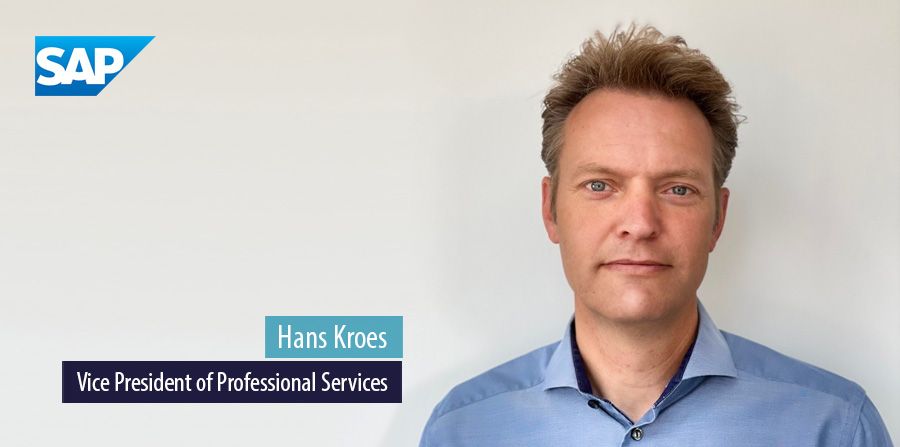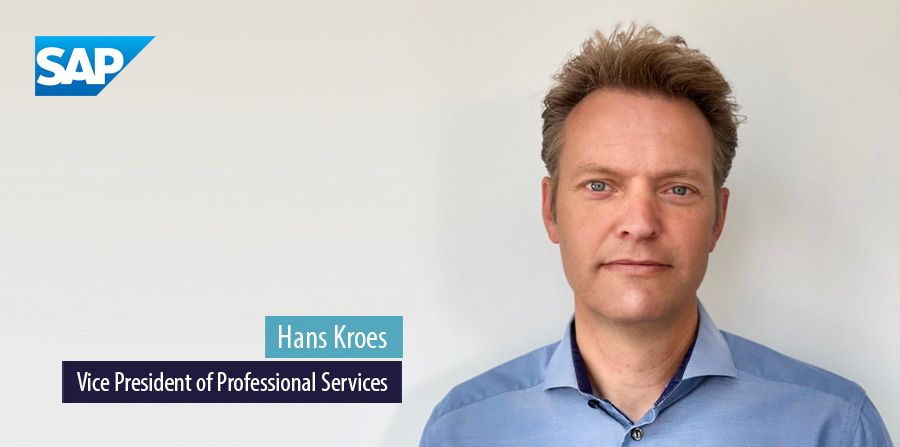Amid a highly saturated consulting sector, and with the labour markets tightening, professional services firms are facing pressures to come up with differentiating factors to win new clients. Hans Kroes, Vice President of Professional Services for SAP, explains how as-a-service extensions of traditional models can help consultancies expand revenues in a competitive market.
Professional services firms such as consultancies, accounting firms, and legal practices face the challenge of finding new ways to grow revenue without expanding their workforces in a tight labour market. One promising way to achieve nonlinear growth is to harness IT to codify the specialised knowledge that differentiates a professional services firm, then deliver leveraged, “productised” services as outcome-based, by-subscription, and as-a-service extensions of traditional time-and-expense business models.
Descriptions of motivations behind productisation typically evoke benefits to clients and professional service firms as businesses. Clients spend less than they would on a la carte services to do the same job. Professional service firms enjoy higher margins thanks to the scalability of encoded intellectual property. But another group also stands to gain from productisation, and that’s the professional services workforce. Turning your services into products is not only good for business, but also the right thing to do for your people and the environment.

First, productisation helps maintain a healthier work-life balance at firms that historically have seen employees spending 150 or 200 days a year at client sites far from home. The grand remote-work experiment the coronavirus pandemic forced upon professional services firms has shown us that remote work. SAP wasn’t the only employer to be pressed into doing 100% virtual engagements for our own customers, and we weren’t the only ones to be pleasantly surprised at how well they turned out. The same held true for virtual engagements by the many firms serving SAP. There will always be a need for relationship building that can only happen face-to-face. But it’s clear that remote work will remain a mainstay.
This cultural shift plays into productisation. Clients now see that expertise yields results whether it’s delivered by visiting talent or indirectly through digital means. It’s a short step from there to embracing a systematised manifestation of certain elements of that service bundle. Starkly lower costs for travel and expense also appeal to clients, and the accumulation of vast numbers of frequent-flier miles and hotel points aside, it’s good for workforce morale and overall physical and mental health. Productisation is also appealing to highly specialised contingent experts who can work on their preferred schedule and tap in and out of project with far less impact on their personal lives.
Second, the work of shaping intellectual property into a digital product can be done remotely or in a local office, both of which are more environmentally sustainable than jetting off to client sites. While enabling work-from-home may have less-than-straightforward environmental implications when it comes to office commutes, business travel is a major contributor to corporate carbon emissions, and cutting back on it resonates not only with a company’s environmental, social, and governance goals, but also with a workforce that’s increasingly attuned to environmental issues.
Third, environmental concerns are not the only way the emerging workforce follows its heart. Younger workers are clearly more engaged in climate action and, in general, environmental sustainability – which makes sense, seeing as they’re inheriting the planet. But their desire to integrate personal passions into their work lives manifests in other ways, too. While the sentiment also applies to older generations, Millennial, Gen Y, and Gen Z talent place particular weight on purposeful, fulfilling work that challenges them and fosters personal growth.
Productisation helps feed these desires. As noted, logistically speaking, while working from home either part- or full-time demands its own sorts of adjustments, those impositions pale compared to spending weeknights in a hotel. Experts who are embedding their knowledge in scalable systems rather than one-off engagements invariably share their knowledge with others in-house along the way, providing employee learning opportunities through the product-development process. The location-flexible nature of product development also opens the door to opportunities to participate without concern for physical proximity. Experts can raise their hands for projects across industries and geographies as their interests and schedules dictate.
Fourth, while long-term onsite projects are great for strengthening client relationships, they can also weaken the bonds professional services staff have with their own employer. That often leads to attrition as they hire into the clients they’re serving. Productising aspects of a service offering through combinations of work done at the client site and remotely can reinforce the relationship professionals have with the firms they work for.
Strategically adapting aspects of repeatable services into scalable digital products is good business for clients and professional services firms. Happily, it also benefits the professional services workforce – and that’s good for business, too.




